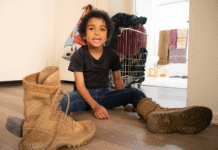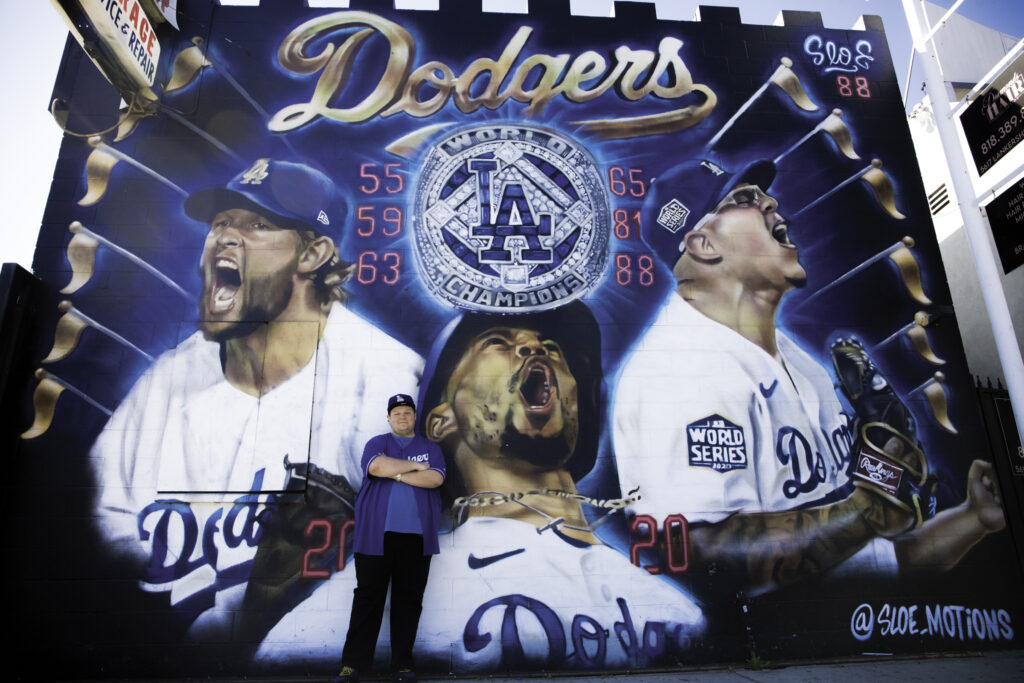
While Jazzlyn Flores can’t remember much of her first Dodgers game, she can recall the Dodger dog that her small hand could barely hold, the sea of blue surrounding her and the waves of cheers and chants that erupted from every seat.
Her dad, who was seated next to her, made sure she knew the ins and outs of the game and, most importantly, taught her to be a proud fan.
For Flores and her father, the Los Angeles Dodgers are more than a baseball team. The fandom bleeds blue, and it feels like there is no LA without them.
While Flores is now the proud owner of a beauty parlor, her first ever job was at the stadium her dad would take her to every year to cheer on their favorite LA team.
“From the moment I can remember, my parents were putting me in Dodgers gear,” Flores said. “I don’t know LA without the Dodgers.”
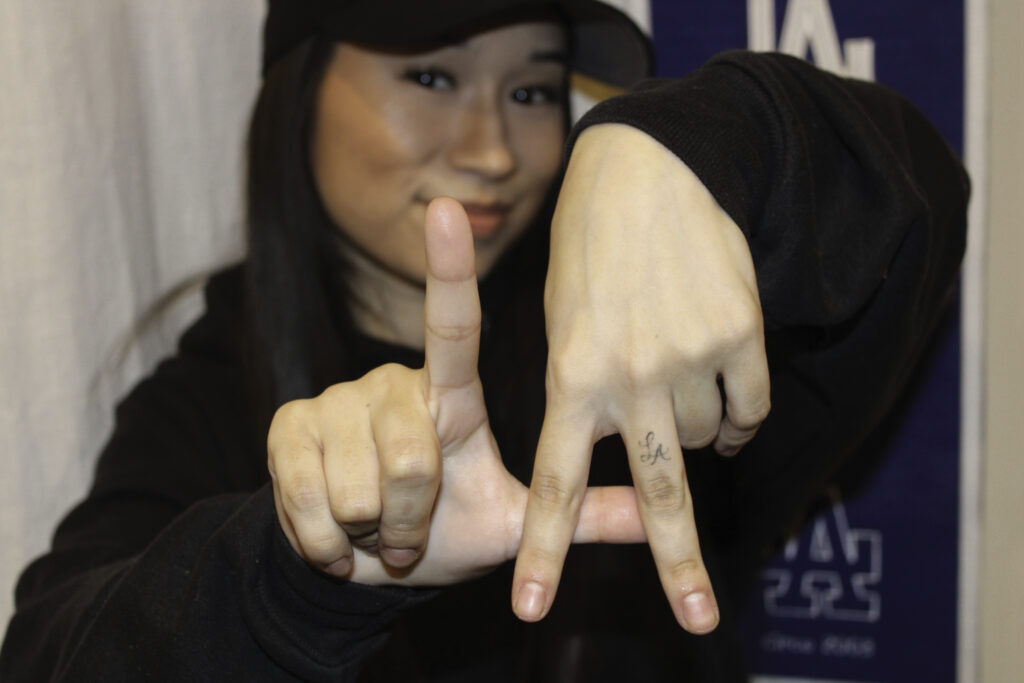
She even went as far as to commemorate her favorite team and fondest memories with an LA Dodgers tattoo on her middle finger. Her dad got a matching tattoo at the same time.
“When I see my tattoo, it reminds me of such an important part of me, and it reminds me of my family,” Flores said. “I know people see it and might think, ‘Oh, she’s just a Dodgers fan,’ but it means a lot to me.”
Blake Williams, a former Pierce College student, is another fan who took his love of the team and made it a career. Williams is a writer for the Los Angeles Dodgers blog, Dodger Blue. Like
Flores, his love for the team was instilled by his family.
“My grandma was a Dodgers fan from when they were playing in Brooklyn,” he said. “She raised my mom to be a Dodgers fan, and she raised me to be a Dodgers fan as well. It feels like home to support them.”
Los Angeles became home to the Dodgers in 1958. The team was founded in the New York burrough of Brooklyn and played for 68 seasons before making the move to the West Coast.
The Dodgers were also the first Major League Baseball team to ever play in Los Angeles. They played four seasons at the Memorial Coliseum before moving to a newly constructed stadium in the Chavez Ravine neighborhood near downtown.
This stadium is now one of the oldest ballparks in Major League Baseball and has a 56,000-seat capacity. It was built in an attempt to give the city a more modern aesthetic.
Eventually, the stadium would break records in more ways than one. This year alone, the Dodgers had nearly 4 million spectators during the season.
The stadium has also become an integral part of the downtown area since its inception.
But, Dodgers culture extends beyond the neighborhoods around the stadium. Their infamous LA blue-and-white logo is a staple piece in many Angelenos’ closets.
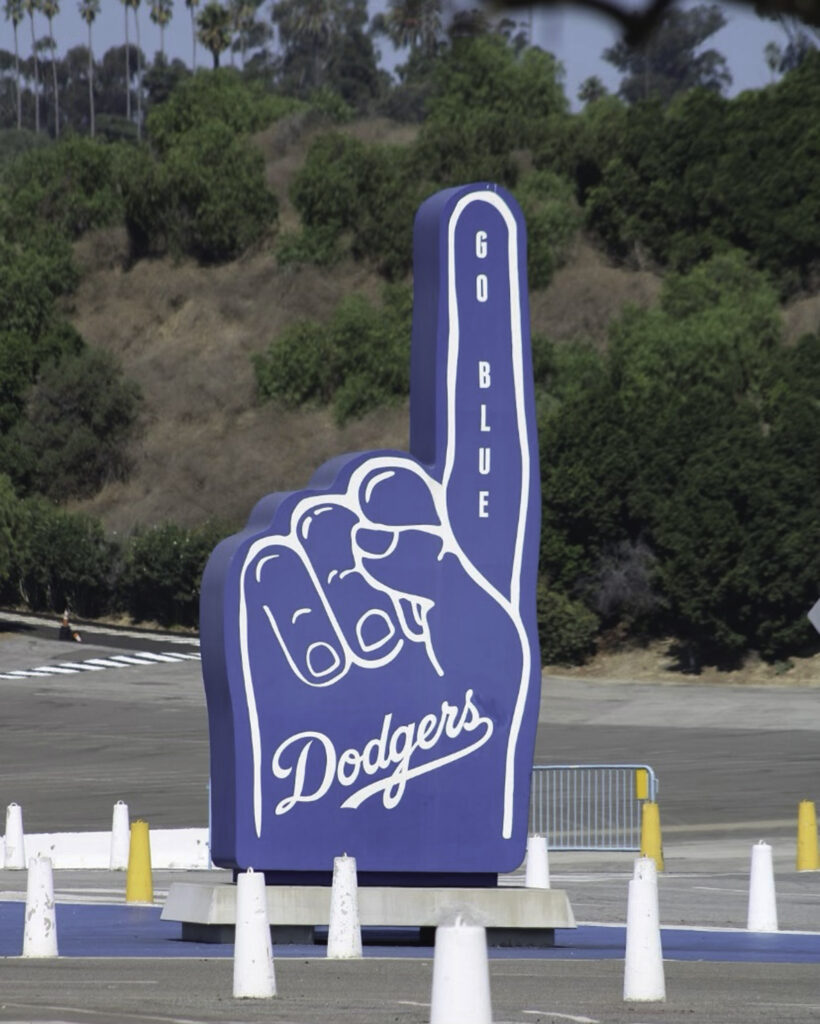
Fan Stephanie Estrada is loaded with team gear and bought even more pieces on a recent tour of the stadium. As a season ticket holder, she said going to the games is the most exciting part of her year.
“I wait year-round to be able to go to the games with my boyfriend,” Estrada said. “It’s our little tradition at this point. We try to go to at least one game a week every season.”
Estrada was aware of the Dodgers and their reputation in the city, but she did not develop a passion for the team until she met her boyfriend, Adrian Galindo.
“He brought me on one of our first dates to a Dodgers game, and I didn’t know much about it, but he lit up whenever we came, so I learned to love it,” Estrada said. “It’s our special place now.”
Galindo said he knew that Estrada would like the Dodgers once she came to a game, and now the couple attends games at least 10 times every year.
These are the types of connections that a baseball team can foster with its residents.
The two-letter logo is not just an LA brand. You can go most anywhere in the country and spot a fan wearing a white and blue Dodgers hat.
“The Dodgers aren’t just an LA brand. They’re a global brand,” Williams said. “You’re supporting a team with so much history. They’re the team that brought in Jackie Robinson, they’re the team that brought in Valenzuela, they’re the team that brought in Nomo. There’s just so much history within one team and one city.”
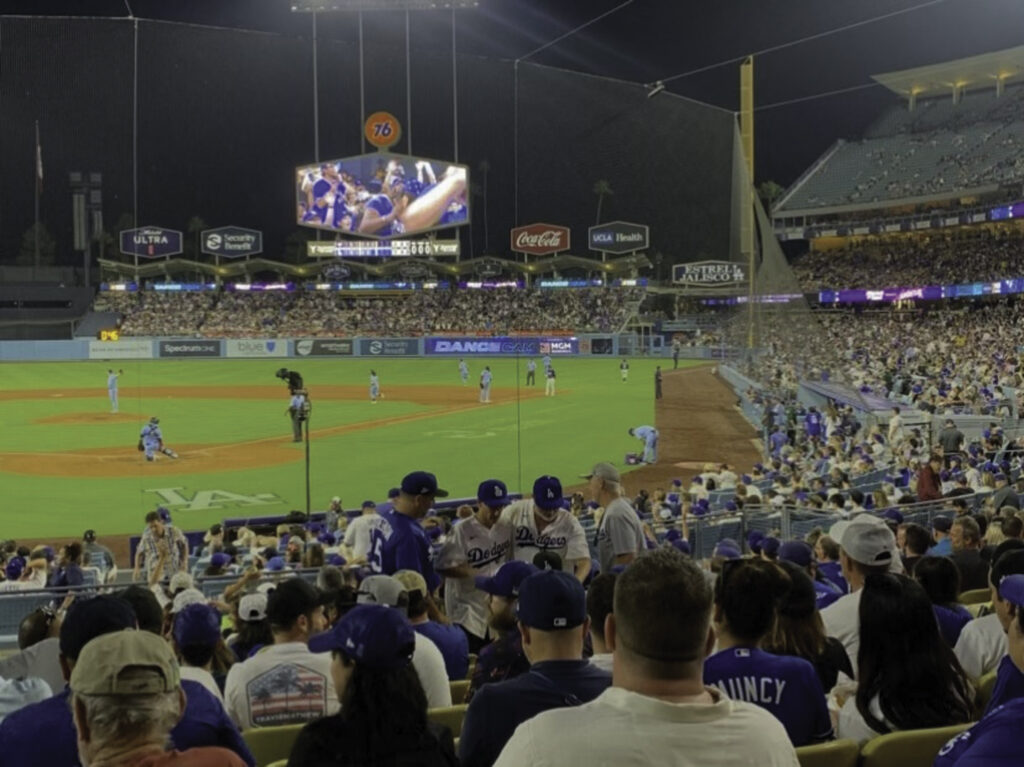
Although more than 20 years has passed since she attended her first game, Flores is still going each year with her dad, grabbing a Dodger dog and cheering on her team.
“My dad used to take me to Dodger games when I was younger and now that I’m older, I get to take him to the games every year. I think that’s what’s so special about it. It’s something that’s always waiting for us.”


